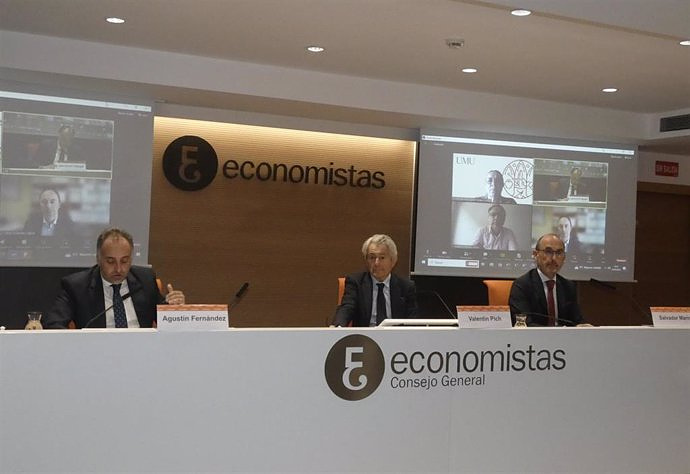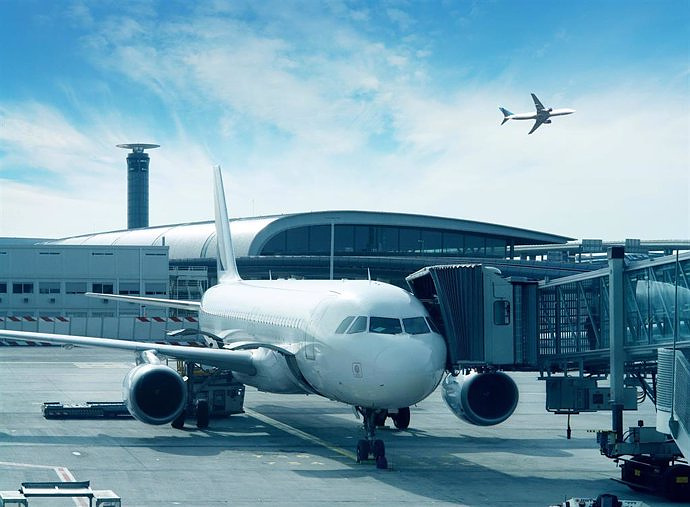United Nations calls on China to take urgent action to end human rights violations
Beijing points out that the document is based on "lies fabricated by anti-Chinese forces"
The United Nations High Commissioner for Human Rights, Michelle Bachelet, released a long-awaited report on Wednesday on the alleged violations that the Chinese government would have committed against the Uyghur minority in the Xinjiang region, a week after she recognized pressure from Beijing to prevent the publication of said document.
In its 48 pages, the UN report highlights the "credible" evidence of human rights violations that China would have carried out in Xinjiang against the minority Muslim confession.
Specifically, this report - which has been in preparation for three years - ensures that "serious violations of Human Rights" have been committed in the context of the application of anti-terrorist strategies and against "extremism" approved by the Government. Chinese in 2014.
"The application of these strategies and associated policies in the special administrative region of Xinjiang has given rise to severe and undue restrictions on a wide range of human rights," says the document shared by Bachelet.
"These restrictions patterns are characterized by a discriminatory component, as the underlying acts often directly or indirectly affect Uyghurs and other predominantly Muslim communities," it adds.
The UN High Commissioner for Human Rights has described China's anti-terrorist strategies in the region as "deeply problematic" from the point of view of international standards, since it would contain "vague, broad and open concepts that leave great discretion to officials to interpret and apply broad powers of investigation, prevention and coercion".
Furthermore, "in a context of limited guarantees and little independent oversight", such a framework would have effectively led to the large-scale arbitrary detention of members of the Uyghur community and other predominantly Muslim communities in Xinjiang in the VETCs (the so-called vocational education and training centers).
In the VETC, detention centers where the Chinese regime "reeducates" Uyghurs, "an arbitrary detention system with patterns of abuse" would be exemplified, according to the report.
"The treatment of people held in the so-called VETC system is equally concerning. Allegations of patterns of torture or ill-treatment, including forced medical treatment and adverse conditions of detention, are credible, as are reports of incidents individual cases of sexual and gender-based violence", he argues.
The United Nations document also denounces violations of reproductive rights through the discriminatory application and forced obligation to carry out family planning and birth control policies.
Restrictions on religious identity and expression, as well as on the right to privacy and free movement, were also allegedly carried out.
"Furthermore, there is evidence that work and employment schemes for purported poverty alleviation and prevention of 'extremism' purposes, including those related to the VET system, may involve elements of coercion and discrimination on the basis of religious and ethnic," the report adds.
UNITED NATIONS URGENT MEASURES TO CHINA
The United Nations High Commissioner for Human Rights has called on China to act urgently to release "all people arbitrarily deprived of their liberty" in Xinjiang, whether in vocational training centers, prisons or other centers. detention.
He has also demanded that he clarify the whereabouts of people whose families have been requesting information, including providing details about their loved ones in the special administrative region.
"(The UN calls on China to) undertake a comprehensive review of the legal framework governing national security, counter-terrorism and minority rights in the Xinjiang Special Administrative Region to ensure compliance with binding international law. in matters of Human Rights", asserts the document presented by Bachelet.
However, the United Nations has called for an investigation "without delay" into the allegations of human rights violations in detention centers, including allegations of torture, sexual violence, mistreatment, forced medical treatment, as well as forced labor and reports of deaths in custody.
BEIJING ASSURES THAT THE REPORT IS BASED ON "LIES"
A week before the publication of the report, the Permanent Mission of China to the United Nations Office in Geneva issued a statement that the UN High Commissioner for Human Rights shared on Wednesday, and in which the Chinese side opposed " strongly" to the publication of the report published by Bachelet.
"This so-called 'assessment' runs counter to the High Commissioner's mandate and ignores the human rights achievements jointly made by people of all ethnic groups in Xinjiang and the devastating harm caused by terrorism and extremism to people of all ethnic groups. ethnic groups in the region," reads the Chinese statement.
In this way, he has accused the report of being based on "disinformation and lies fabricated by anti-Chinese forces", and has underlined an alleged lack of presumption of innocence.
"The so-called 'assessment' distorts China's laws and policies, gratuitously slanders and slanders China, and meddles in China's internal affairs, violating the principles of dialogue, cooperation and non-politicization (...) and it also undermines the credibility of the High Commissioner," the Chinese authorities added.
This report has been published a week after Bachelet denounced pressure for the imminent publication of the document, receiving a letter signed by 40 countries and whose name the High Commissioner did not want to reveal.
"I have been under tremendous pressure. But I will not withhold publication because of it," Bachelet explained, adding that her office is working for the text to be finished by the end of August, as it has finally been.
Bachelet visited Xinjiang and other Chinese regions last May. During the visit, he refrained from criticizing Beijing's policies in the region, which drew criticism from many countries for its ambiguity regarding human rights violations in the region.
The United Nations rapporteur Tomoya Obokata considered in August "reasonable" the denunciations of international organizations about forced labor and the repression against ethnic minorities in the Asian giant.
Obokata explained that it was "reasonable" to conclude that Uyghurs, Kazakhs and other ethnic minorities have repeatedly experienced forced labor in sectors such as agriculture and manufacturing.
The Chinese authorities have launched a series of measures in the Xinjiang region that have caused friction between the Asian giant and the international community, especially the United States, which has come to accuse Beijing of committing human rights violations and even genocide. against the Uighur population.

 Exploring Cardano: Inner Workings and Advantages of this Cryptocurrency
Exploring Cardano: Inner Workings and Advantages of this Cryptocurrency Seville.- Economy.- Innova.- STSA inaugurates its new painting and sealing hangar in San Pablo, for 18 million
Seville.- Economy.- Innova.- STSA inaugurates its new painting and sealing hangar in San Pablo, for 18 million Innova.- More than 300 volunteers join the Andalucía Compromiso Digital network in one month to facilitate access to ICT
Innova.- More than 300 volunteers join the Andalucía Compromiso Digital network in one month to facilitate access to ICT Innova.-AMP.- Ayesa acquires 51% of Sadiel, which will create new technological engineering products and expand markets
Innova.-AMP.- Ayesa acquires 51% of Sadiel, which will create new technological engineering products and expand markets The parties open the election campaign in Catalonia
The parties open the election campaign in Catalonia Javier Tebas: "The CSD Commission does not have legal protection"
Javier Tebas: "The CSD Commission does not have legal protection" STATEMENT: Repair your Debt Lawyers cancels €65,000 in Cantabria with the Second Chance Law
STATEMENT: Repair your Debt Lawyers cancels €65,000 in Cantabria with the Second Chance Law RELEASE: Zoomlion shines at INTERMAT 2024 with a vision for a greener and smarter future
RELEASE: Zoomlion shines at INTERMAT 2024 with a vision for a greener and smarter future How Blockchain in being used to shape the future
How Blockchain in being used to shape the future Not just BTC and ETH: Here Are Some More Interesting Coins Worth Focusing on
Not just BTC and ETH: Here Are Some More Interesting Coins Worth Focusing on Retrópolis brings the golden age of video games and computing to the UPV
Retrópolis brings the golden age of video games and computing to the UPV Looking for video games that value the neighborhoods of Valencia
Looking for video games that value the neighborhoods of Valencia UPV researchers improve the efficiency of air conditioning systems using a geothermal heat pump
UPV researchers improve the efficiency of air conditioning systems using a geothermal heat pump València is committed to citiverse and smart tourism to be "the reference technological hub of the Mediterranean"
València is committed to citiverse and smart tourism to be "the reference technological hub of the Mediterranean" A million people demonstrate in France against Macron's pension reform
A million people demonstrate in France against Macron's pension reform Russia launches several missiles against "critical infrastructure" in the city of Zaporizhia
Russia launches several missiles against "critical infrastructure" in the city of Zaporizhia A "procession" remembers the dead of the Calabria shipwreck as bodies continue to wash up on the shore
A "procession" remembers the dead of the Calabria shipwreck as bodies continue to wash up on the shore Prison sentences handed down for three prominent Hong Kong pro-democracy activists
Prison sentences handed down for three prominent Hong Kong pro-democracy activists ETH continues to leave trading platforms, Ethereum balance on exchanges lowest in 3 years
ETH continues to leave trading platforms, Ethereum balance on exchanges lowest in 3 years Investors invest $450 million in Consensys, Ethereum incubator now valued at $7 billion
Investors invest $450 million in Consensys, Ethereum incubator now valued at $7 billion Alchemy Integrates Ethereum L2 Product Starknet to Enhance Web3 Scalability at a Price 100x Lower Than L1 Fees
Alchemy Integrates Ethereum L2 Product Starknet to Enhance Web3 Scalability at a Price 100x Lower Than L1 Fees Mining Report: Bitcoin's Electricity Consumption Declines by 25% in Q1 2022
Mining Report: Bitcoin's Electricity Consumption Declines by 25% in Q1 2022 Oil-to-Bitcoin Mining Firm Crusoe Energy Systems Raised $505 Million
Oil-to-Bitcoin Mining Firm Crusoe Energy Systems Raised $505 Million Microbt reveals the latest Bitcoin mining rigs -- Machines produce up to 126 TH/s with custom 5nm chip design
Microbt reveals the latest Bitcoin mining rigs -- Machines produce up to 126 TH/s with custom 5nm chip design Bitcoin's Mining Difficulty Hits a Lifetime High, With More Than 90% of BTC Supply Issued
Bitcoin's Mining Difficulty Hits a Lifetime High, With More Than 90% of BTC Supply Issued The Biggest Movers are Near, EOS, and RUNE during Friday's Selloff
The Biggest Movers are Near, EOS, and RUNE during Friday's Selloff Global Markets Spooked by a Hawkish Fed and Covid, Stocks and Crypto Gain After Musk Buys Twitter
Global Markets Spooked by a Hawkish Fed and Covid, Stocks and Crypto Gain After Musk Buys Twitter Bitso to offset carbon emissions from the Trading Platform's ERC20, ETH, and BTC Transactions
Bitso to offset carbon emissions from the Trading Platform's ERC20, ETH, and BTC Transactions Draftkings Announces 2022 College Hoops NFT Selection for March Madness
Draftkings Announces 2022 College Hoops NFT Selection for March Madness



























